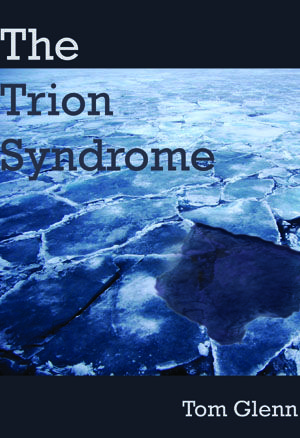Q&A with Featured Author Tom Glenn

by Larry Matthews
This is Tom Glenn‘s second year as a presenting author at the Gaithersburg Book Festival. His new book, “The Trion Syndrome,” is the latest in his series of novels based on the lasting wounds of war.
Tell us about “The Trion Syndrome.” What can a reader expect?
I write because I have to. Among other things, writing forces me to face my memories head on. “The Trion Syndrome” confronts directly living with Post-Traumatic Stress Injury. It tells the story of a man whose past in the Vietnam war almost destroys him. The reader can expect to see a man’s life fall apart because he can’t come to terms with what he has done. He doesn’t remember consciously what happened until he has lost his family and his job and finds himself at an all-time low. He runs away and hides. The second half of the book shows how a son he didn’t know he had leads him home again.
What is the myth this book is based on?
The Trion myth is fictional. I searched Greek mythology for an apt tale that paralleled the story of Dave Bell, my protagonist. None fit perfectly, so I borrowed bits of various myth to create the story of Trion, a demigod drowned by the gods after he butchered his own infant son to demonstrate his ferocity. Dave finds himself drawn to the Trion myth without knowing why. And he studies a novella (also fictional) by the great German writer, Thomas Mann, based on the myth. Dave believes he sees himself. After he remembers what he has done, he is preparing to drown himself when his son arrives and shows him the way home.
You write books about wounded people. In your book “No-Accounts” it was AIDS. In “Friendly Casualties” it was Post-Traumatic Stress. “The Trion Syndrome” is also about wounded people. Where does that come from?
My own unhealable wounds. “Friendly Casualties” came from my 13 years, on and off, under cover in Vietnam supporting U.S. Army and Marine combat units. “No-Accounts” resulted from the five years I devoted to caring for AIDS patients—all gay, all died—when I learned that compassion brings peace, even when you have unbearable memories. In Trion, I wanted to show that combat can wound the soul. Fighting other men to the death is gruesome. Killing another human being tears your humanity. Watching your combat buddies, the guys you fought beside, die in agony rends the psyche. Some wounds never heal.
Your prose is polished and your characters are rich and real. How does that happen? What is your process when you stare at a blank page?
The polish comes from many years of working to perfect the craft of fiction, an unending struggle. The characters come alive in my imagination and take me over. I have to tell their stories to find peace. I’m sure that comes from the way I write. I unleash my unconscious by putting myself in a dream-like state, similar to what happens in meditation. My characters take me over, live out their lives before my eyes, open their souls to me so that I can see, hear, feel what’s happening. Then I write down what’s playing out before me, as if I were watching a movie. It doesn’t always work, but when I’m at my best I go for hours—I once wrote for 14 hours straight. Once the draft is done, I put it aside for weeks, months, sometimes a year. Then I go back and start revising using only my rational mind. After the third draft, I do an outline for the first time to see where the structure is awry. After that, I let the manuscript cool again for a while. Next I go through it critically, trying to see it as a reader might. Finally, I go back to my meditative self to read through it for insights. A long, meticulous process. “No-Accounts,” for example, went through 21 drafts. Then one day, I realized it was finished. So my novels take me 10 to 15 years to complete, but I’ve always got several in draft at a time.
Tell us a little about your background.
After college (BA in music) and the army, I was hired by the National Security Agency where I worked for the next 35 years as a linguist (seven languages). NSA sent me to Vietnam under cover repeatedly until Saigon fell in 1975. One way or another, I’ve spent a great deal of time with the military, usually Army or Marines, sometimes under cover as a member of a combat unit, so I’m comfortable with military men and women.
I took a masters and doctorate while working at NSA. I married the first time as a soldier and have four delightful children and so far four grandchildren. I’m a trained musician and play the piano every day. I read a great deal, review books for the Washington Independent Review of Books, don’t watch television (I don’t own a TV), and spend an inordinate amount of time taking care of my oversized house and yard. But most of my time is spent writing.
Tom’s next book, “The Last of the Annamese,” is due out early in 2017 from Naval Institute Press. It is based on his experience in the last days of the Vietnam War as the North Vietnamese closed in on Saigon. The novel used previously classified details to enrich the reader’s understanding of the magnitude of America’s experience there.


